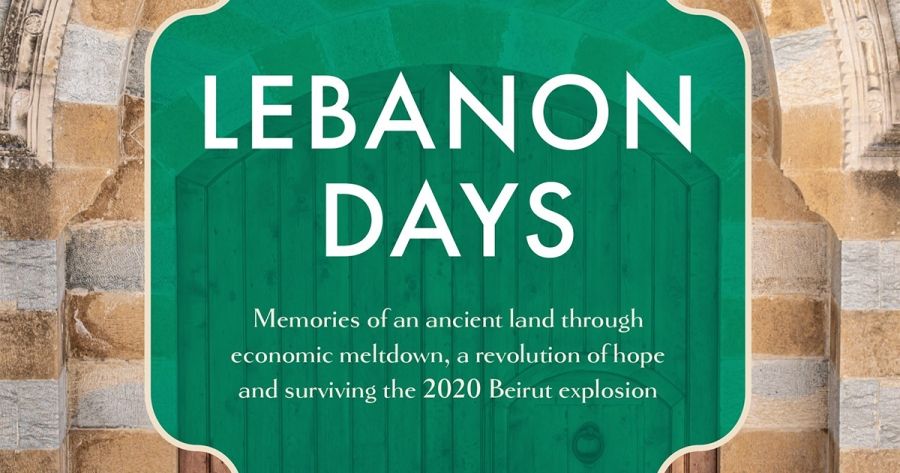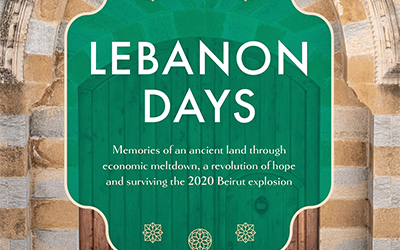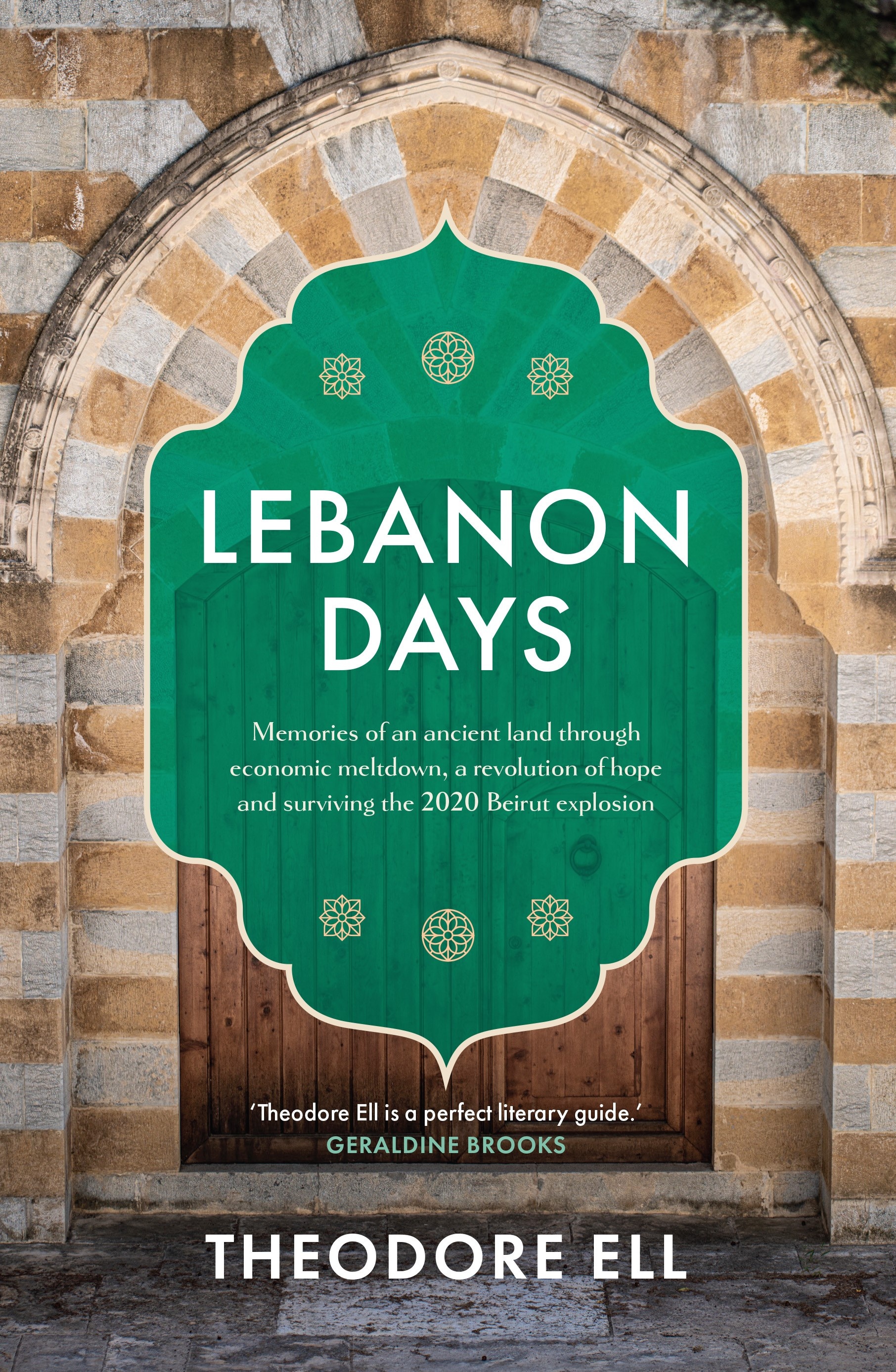
- Free Article: No
- Contents Category: Memoir
- Review Article: Yes
- Article Title: ‘The climax of nothing’
- Article Subtitle: Visions of absolute nullity in Lebanon
- Online Only: No
- Custom Highlight Text:
On 4 August 2020, a gigantic explosion in the Beirut docks devastated much of the city and the local economy. In this powerful and beautifully written memoir, Theodore Ell writes that while opaque causes must have been at work, the event itself was ‘senseless, random and barren’. He adds that the account he had given of the disaster in his Calibre Prize-winning essay, ‘Façades of Lebanon’ (ABR, July 2021), erred in seeing the blast as ‘the climax of a narrative’. In fact, it was ‘the climax of nothing’.
- Featured Image (400px * 250px):

- Alt Tag (Featured Image): Richard Freadman reviews ‘Lebanon Days: Memories of an ancient land through economic meltdown, a revolution of hope and surviving the 2020 Beirut explosion’ by Theodore Ell
- Book 1 Title: Lebanon Days
- Book 1 Subtitle: Memories of an ancient land through economic meltdown, a revolution of hope and surviving the 2020 Beirut explosion
- Book 1 Biblio: Atlantic Books, $34.99 pb, 346 pp
- Book 1 Cover Small (400 x 600):

- Book 1 Cover (800 x 1200):

Ell accompanies his wife, Caitlin, when she takes up the post of deputy ambassador in Lebanon from the end of 2018 to the beginning of 2021. Like many travellers who commit their experiences to paper, Ell embarks in a heightened state of receptivity. He wants to let the wider world in. He hopes that the journey will cause him to ‘alter course’ in a way that will ‘alter me’. They find a country ravaged by centuries of conquest and defeat, and a fifteen-year civil war (1975-90). During their stay, they live through a revolution (the thowra), the Covid pandemic, and the explosion at the docks, which they were lucky to survive.
The word ‘nothing’ comes up repeatedly, but in unhelpfully shifting ways. It is not on the whole a version of existential nothingness, though Ell does seem at times to fear that reality might be wholly contingent. Its range of meanings includes a thing or project without value; an absent cause; a crusade that comes to nothing, sometimes for discernible reasons; the vanity of human wishes; and people’s inability to learn from the past. In one of many moments reminiscent of Shelley’s ‘Ozymandias’, he thinks of Beaufort Castle in southern Lebanon, near the border with Israel: ‘the only spot in all those ranges commanding views in every direction, retreated from as many times as it was captured, a flagstaff on top of a pile of rubble. It stood for nothing …’
Ell seldom anatomises kinds of invasion (imperialistic, religious, colonial), or even contemporary regional politics. He prioritises underlying propensities: sadistic constructions of the Other, greed, grandiosity, and sheer ‘evil’. When someone detonates fireworks on the brink of expected war, he yells, ‘What idiot … what maniac launches fireworks on the night all of Beirut thinks it’s going to die?’; lying in bed on Christmas Eve of 2021, he hears Israeli fighter planes flying low and menacingly over his suburb of Hamra. He wonders in ‘suppressed rage’ how they could do that at just the time when ‘for once the people of Lebanon might take some comfort together’.
Ell is one of those writers who is less adept at explaining what he is trying to do than at doing it. In his Preface, he tells us that ‘the drives to know and be known in the face of nothingness are what this book is about, not the explosion’. He wants to shift the narrative ‘point of view’ he adopts in the essay in a way that eschews ‘abstraction’, ‘symbolism’, and the depiction of the explosion as the culmination of a narrative arc. It was, in fact, the ‘culmination of nothing’.
Yet however imprecisely he uses it, ‘nothing’ often carries tremendous emotional and rhetorical force in this book. Lebanon Days is many things – expatriate memoir, memoir of place, social-historical reportage – but it is also the cri de cœur of a highly sensitive man who is overwhelmed by what he sees and experiences. It is, then, also trauma memoir; and ‘nothing’ is the appalled finding of a man racked by visions of absolute nullity.
Lebanon Days is consistently intense, sometimes apocalyptic. One consequence of this is that the line between direct, unmediated description and ‘symbolism’ becomes particularly hard to draw. Consider for instance the following vertiginous vignette, pitched at a moment of sharp economic downturn that hits the construction industry. Theodore sees from his apartment a man whom he presumes to be a manager, high up on a nearby stalled building, trying to fix a crane:
The manager began to climb out onto the neck of the crane, spreadeagling himself among the steel struts and triangles for purchase and picking his way out into space without a harness. His tiny head and limbs were agitating against the sky and his jacket was flapping in the breeze. He quickened his pace out along the bouncing neck and prepared to bend down and fiddle with the pulley, holding onto a strut with only one hand. I turned away and left the room, on the point of vomiting at the sight.
It is a typically superb piece of direct description, but most readers will find symbolic implications in it as well: the parlousness of life during economic strife, perhaps the parlousness of life in general; the imperilled self’s genius for survival; Ell’s inability to tolerate the confronting strangeness of the place. One of the strengths of this memoir is that it leaves ample room for the reader’s imaginative collaboration.
The thowra is the second major event that occurs during the couple’s stay. Ell is buoyed by the conviction that the moment ‘belonged to those people in Lebanon who believed in an unsegregated and unexploited life’. His descriptions of the ‘carnival mood’ and the accompanying violence are typically memorable, as is his demoralisation when the movement, lacking in his view a vision for the country, peters out. The revolution had ended ‘in nothing’.
And then comes the explosion:
A shadow, like a bird crossing the sun, came rushing at our windows. At one blow, with a surge of thunder, the tall windows of the long gallery crashed in and a wall of air punched its way through the middle of the house, like an express train howling down a tunnel. I never completed my final stride into the kitchen. As the blast tore through the house, it sent a piece of glass or metal flying into the last part of me that had not crossed the kitchen threshold: my exposed right heel. I was barefoot. The gash spat blood in all directions.
The last third of the book often describes feelings of derealisation: he feels ‘[v]acant and indistinct even to myself for long stretches’, ‘stupefaction as heavy as sunstroke’, and the sense that he has ‘become an imperfect copy of my previous self’. The nightmares and liminal states he now experiences are conveyed with characteristic power: ‘There was a dark mirror to my waking thoughts. Once or twice I was distinctly aware of the moment at which I fell asleep, passing through the lining of my mind in a way [I’ve] never known before or since.’
He is tormented by involuntary memories. When he returns to Australia, he receives treatment for what is presumably PTSD.
The author’s anguish is in large part moral. Lebanon ‘weakened disbelief’ in the depravities of which people are capable. Thus in one respect did Theodore Ell indeed ‘alter course’. A brilliant late formulation again laments our inability to learn from the past. So often, instead, we choose ‘to turn chaos into a blowtorch of will’. He has indeed become ‘a changed man’ during his Lebanon days. But not as he would have hoped. Change now entails this: ‘I had accommodated evil.’


Comments powered by CComment